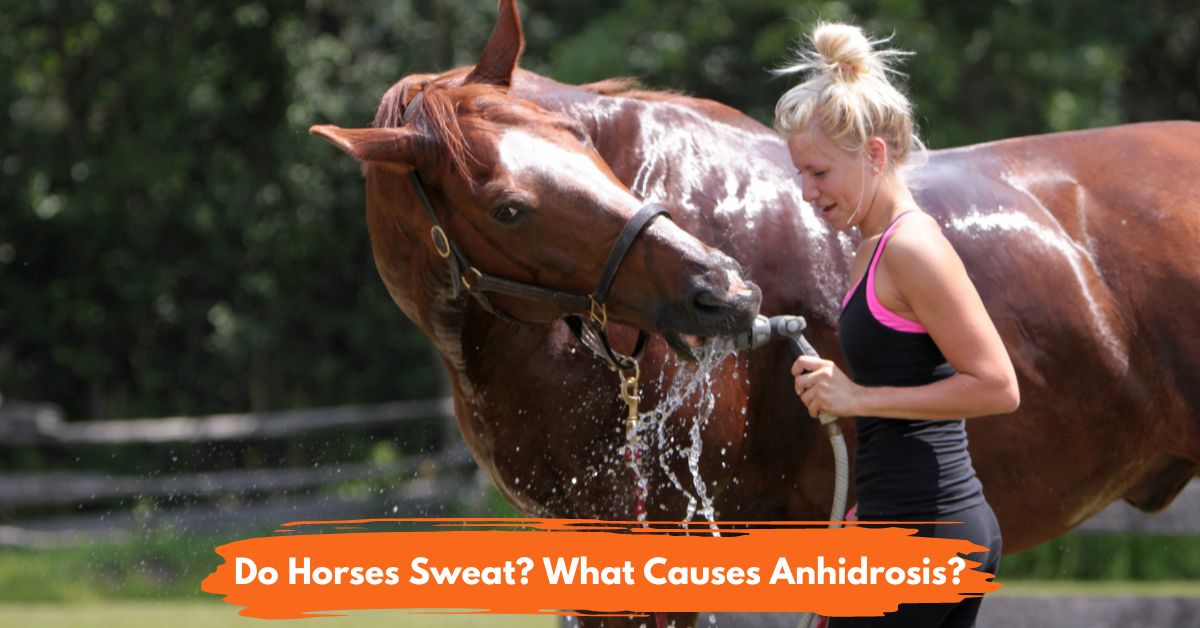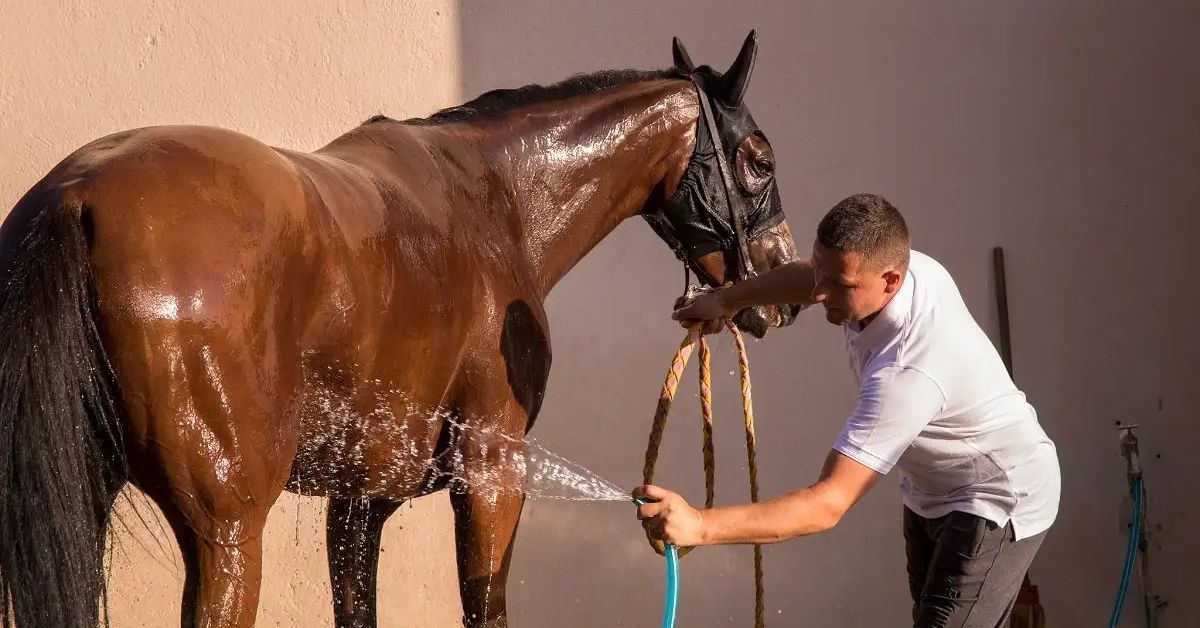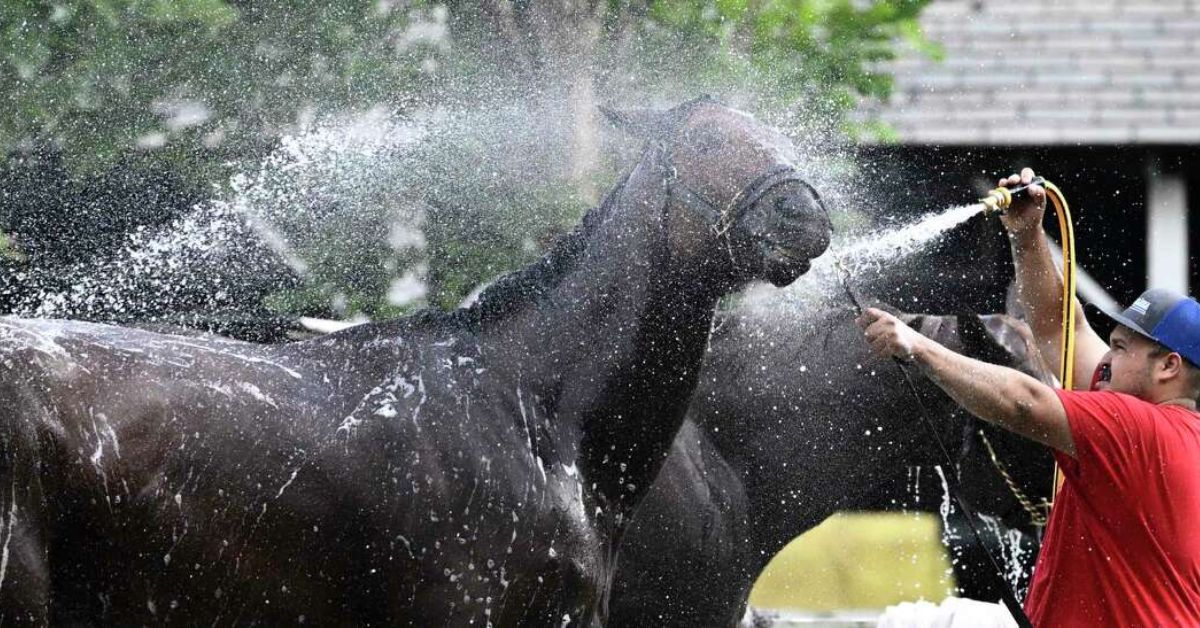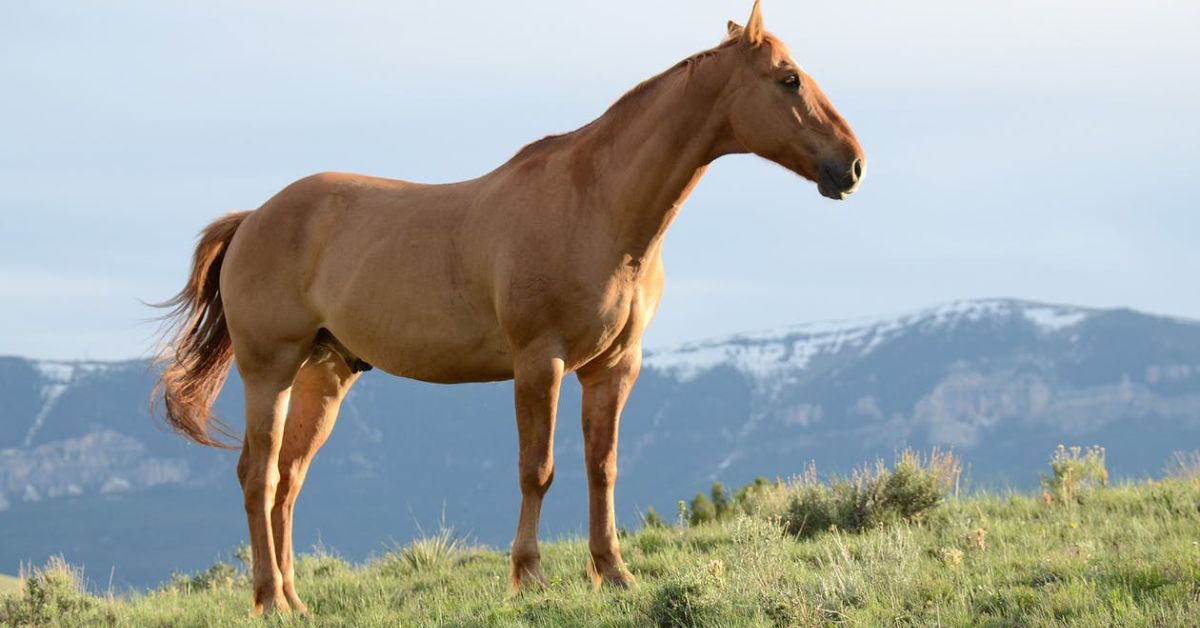
Do horses sweat? What is anhidrosis in horses? When you are sweating in hot summer, you may wonder these question. As mammals, horses do have sweat glands like all of us.
Sweat glands are crucial for our cooling systems. Because they could help us relieve heat build-up and keep our temperature relatively stable, so do horses.
I have been taking care of horses for nearly ten years. And I have found that sometimes there may be anhidrosis among horses.
In this article, I will share my experience of horse sweating with you. And you may find something interesting on horse sweating.
Is It Normal For Horses To Sweat?
Yes, it is quite normal for horses to sweat. Your horse may be sweating when doing intense exercise and consuming lots of energy. Being outside in hot summer, your horse could be sweating.
Besides, your horse may sweat when it is in pain, under duress, or ill. Sweat could be the symbol of a healthy horse. Sometimes, sweat might imply that your horse may need help.
How Do Horses Sweat?
As warm-blood animals, horses could cool themselves by sweating. So your horses may tend to sweat when they feel hot. Sometimes, your horse may be sweating while feeling nervous or sick.
As a horse fancier, you may wonder whether horses sweat all over their bodies. Of course not. The sweat usually comes from their neck, chest, as well as legs. You may notice sweat from the rump if your horse is extremely hot.
Under extremely high temperatures, your horse may be in danger of heatstroke. If your horse is standing still or resting with too much sweat, you may need to call a vet to check it. At the same time, a little sweat is normal.
Do Horses Sweat Differently From Humans?
Yes. Horses sweat differently from humans. Firstly, a horse could lose up to 4 gallons of sweat every hour. Because the weight of horses is much larger than that of humans.
Secondly, there are a lot of electrolytes in horse sweat. They are crucial to the health and hydration of horses. And humans’ sweat consists of large water and fewer electrolytes.
In this way, horses lose electrolytes faster than humans when sweating. As a result, horses would become dehydrated easily, and humans would be thirsty.
Why Is Sweating Important?

Sweating is important not only to humans but also to horses. Because sweating is an important way to regulate our body temperature, so do horses.
Horses could cool their bodies by sweating. Besides, sweat could imply their health conditions. Because they could not talk like humans.
If your horse doesn’t sweat in extremely high temperatures, you may consider whether it would have anhidrosis and call a vet. Sometimes, when standing still or having a rest, sweating may be abnormal. And your horse may need a vet.
Without sweating and sweat glands, your horse could not tolerate extremely high temperatures and relieve heat in time after intense activities. And we could not discover the health problems of horses without delay.
Why Is My Horse Sweating For No Reason?
In general, your horse may be sweating due to the increased body temperature. When your horse is sweating, you may need to find out the reasons.
Sometimes, the reason may be intense exercise or hot weather. If not, you should try to check them over for any signs of colic or other problems. And they might cause an increase in temperature.
If your horse is sweating for no reason, you should be careful to check if they are unfit. Sometimes, horses may sweat when they have a high fever or are in pain or distress.
Besides, if your healthy horse sweat while having a rest in cool weather, the reason may be poor ventilation, humid air in the stall, and so on.
In a word, if your horse sweat for no reason, you should attach great importance to the situation. If you cannot find out the reasons, you may need a vet.
Why Is My Horse Sweating In Winter?
Even in winter, your horse may sweat during and after intense exercise. Besides, in winter, your horse’s fur may be much longer, which gives your horse a thick coat to keep warm. This would exaggerate the sweat of your horse. What’s more, your horse may sweat due to pain, a high fever, or other sicknesses, no matter which season. And the bad stall environment may also make your horse sweat.
How Do you Deal With Sweaty Horses?

If you would like to deal with your sweaty horse, you should figure out the reasons why your horse sweat. As to the sweaty horse in hot weather or after intense activities, rinsing with cool water could provide some relief.
If necessary, you could give your horse a bath with a mild and medicated shampoo specialized for horses. In this way, you could clean your horse’s skin. At the same time, your horse can be protected from insects and environmental irritants.
If your horse sweat due to a high fever or any other sicknesses, you may need to call a vet. Or you could give your horse some medicine or other treatments. If due to poor ventilation, humid air in the stall, and so on, the stall condition should be adjusted and improved.
Do Horses Sweat When In Pain?
Yes. Horses may sweat when in pain. When your horse is in pain, its nervous system would have a protection reflection, leading to sweating or trembling. These symptoms may show that your horse is uncomfortable and need your special care.
Why Is Horse Sweat White?
Different from human sweat, the horse’s sweat contains not only water but also much more electrolytes.
Sometimes, you may notice that the horse’s sweat is white, which signifies that the electrolytes are missing. This phenomenon often occurs on the hind legs and neck of your horse.
What Causes Anhidrosis In Horses?

Anhidrosis is also known as non-sweating. This is a kind of illness affecting many horses in the world. And you could find anhidrosis usually in hot and humid areas.
Actually, the exact reason for horse anhidrosis remains unknown. But vets and researchers do a lot of research on this problem. In general, horse sweat usually comes from sweat glands. And the latter is stimulated by nerve signals called catecholamines and then produces sweat.
Yet, recent studies found that the catecholamines of affected horses are much higher than normal ones. Overstimulation of high catecholamines might cause desensitization. Besides, under the microscope, abnormal changes can be found in the cellular structure of sweat glands among affected horses.
In this way, the changes of sweat glands, as well as their altered response to nerve signals, may cause anhidrosis. Also, some vets suspect that the reason may be the hormone stimulation alterations among sweat glands.
How Do I Know If My Horse Has Anhidrosis?
It is easy to identify whether your horse has anhidrosis. Anhidrosis horses would be sleepy in hot climates. And they don’t sweat even after intense exercise.
In general, they may breathe faster with increased heart rates and high body temperatures after work for a while. Under these conditions, your horse should have a dry, flaky coat with certain hair loss. In this way, you could figure out anhidrotic horses easily.
How Do You Treat Anhidrosis In Horses?
Although there are a lot of measures to help non-sweating horses, they are largely unsuccessful. It is reported that a feed supplement called One AC can increase horses’ sweat production.
As we all know, proper hydration and electrolyte balance are crucial to keeping your horse healthy. In this way, altering their living environment or surroundings could be useful for non-sweating horses.
Besides, training would be beneficial to a non-sweating horse. Training should be during the cool time. And cool water and shade should be available all the time.
In addition, misting fans and other stall-cooling ways could be helpful. If these measures don’t work, your horse may need to change its vocation or move to a cooler climate.
In a word, you should turn to your vet to find the best solution. Even a non-sweating horse could be a successful athlete with early discoveries and proper treatments.
Conclusion
It seems that sweating is a tiny affair that we often ignore. However, sweating is quite important to our horses. As horse fancier, we should pay attention to our horse sweat so as to find anhidrotic or other health problems as soon as possible.
We could view sweat as a sign of the health condition of our horses. In general, your horse sweats due to intense exercise or hot climates. If not, you should be careful, for your horse sweating may signify that it has pain, a high fever, or other sicknesses.
In addition, we should attach great importance to anhidrosis, which may cause a series of health problems in horses.
To conclude, it is not easy to feed a horse, especially trying to keep a horse healthy. To be a horse owner, there is a long way to go. Whether you could be a responsible horse owner, only time will tell.
